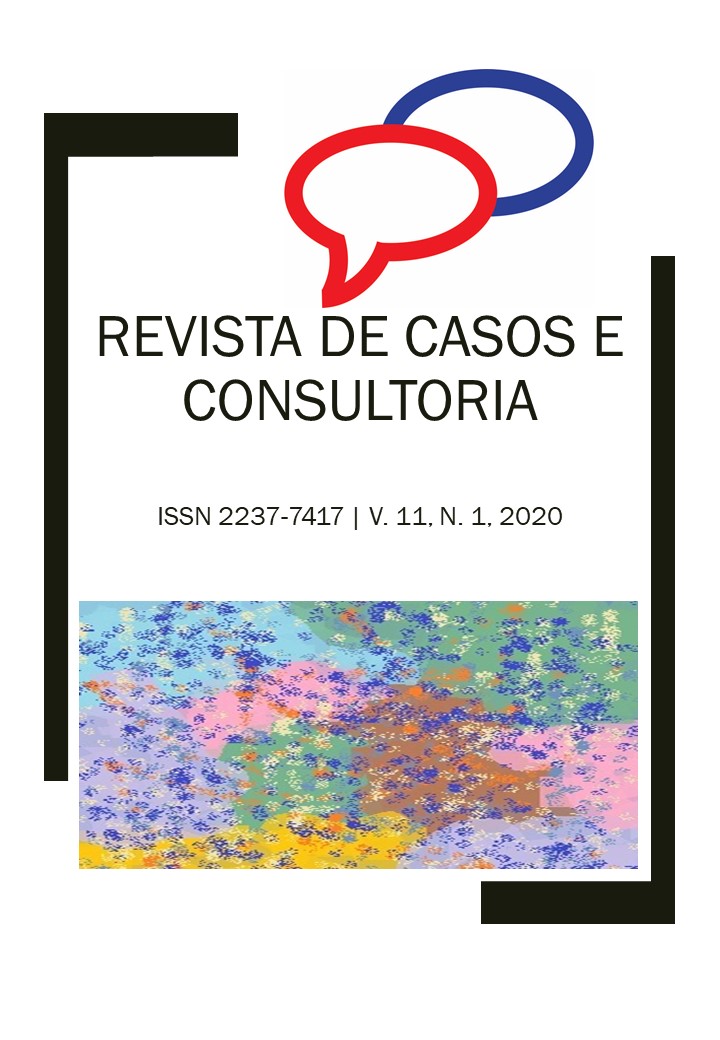The Plain Language in Specialized Educational Service and the weavings of inclusion
Keywords:
Textual accessibility; Inclusive education; Multifunctional Resource Room; Plain language.Abstract
Education is a human rights issue and people with disabilities must be part of it. An Inclusive School is one that educates all students in regular classes, as all students have adequate opportunities to learn, which are challenging, but which are suited to their skills and needs, as well as receiving the support they and their teachers need to succeed in activities. The Plain Language is a form of accessibility that seeks to overcome communication barriers, through the adaptation of texts to a language that is closer to speech, a language with more usual words, seeking the active participation of the individual in society. It can favor different audiences, including people with disabilities or with a learning disorder. Therefore, the objective of the present study will be to offer a training in Plain Language to the teachers of Specialized Educational Service, in the municipality of São José de Mipibu / RN. In order to achieve this goal, we will hold training workshops for teachers working in the Multifunctional Resource Rooms, conducting a Case Study, through observation, application of questionnaires and semi-structured interviews, before and after the workshops. As an initial product, we produced a video presenting the workshops that can be found in the eduCAPES repository. We will seek, at the end of the workshops, that teachers may be able to adapt texts appropriately for students with disabilities in regular schools. We intend with the present study to contribute to future investigations and training in the area of ??Plain Language in Inclusive Education, since, currently, there is little research and studies related to this theme in our country.
Downloads
References
BRAGA, J., & MENEZES, L. (2015). Introdução aos Objetos de Aprendizagem. In B. Juliana (Org.). Objetos de Aprendizagem Volume 1: introdução e fundamentos. (pp. 10-34). Santo André: UFABC. Disponível em: http://pesquisa.ufabc.edu.br/intera/wpcontent/uploads/2015/11/ObjetosDeAprendizagemVol1_Braga.pdf.
BRASIL. Lei Brasileira de Inclusão da Pessoa com Deficiência. Disponível em: http://www.planalto.gov.br/ccivil_03/_Ato2015-2018/2015/Lei/L13146.htm; acesso em: 11 dezembro. 2020.
BRASIL. Política Nacional de Educação Especial na Perspectiva da Educação Inclusiva. Brasília: SEESP/MEC, 2008. Disponível em: <http://portal.mec.gov.br/arquivos/pdf/politicaeducespecial.pdf>. Acesso em 11 dezembro. 2020.
DINIZ, Débora; BARBOSA, Lívia; SANTOS, Wenderson Rufino dos. Deficiência, Direitos Humanos e Justiça. SUR, v. 6, n. 11, dez. 2009. p. 65-77. Disponível em: https://www.scielo.br/pdf/sur/v6n11/04.pdf.
FISCHER, Heloisa. So e? acessível se der para entender. In: MICHELON, Francisca Ferreira; SALASAR, Desirée Nobre (Orgs.). Acessibilidade Cultural, Atravessando Fronteiras. Pelotas: Ed. da UFPel, 2020, p. 244-356.
MARTINS, Lúcia de Araújo Ramos. História da educação de pessoas com deficiência: da antiguidade ao início do século XXI. Campinas: Mercado das Letras, 2015.
MAZZOTTA, Marcos José Silveira. Educação Especial no Brasil: história e políticas públicas. São Paulo: Cortez, 1996.
RODRIGUES, David. Dez ideias (mal)feitas sobre a educação inclusiva. In: RODRIGUES, David (Org.) Inclusão e Educação: doze olhares sobre a educação inclusiva. São Paulo: Summus, 2006. Disponível em: http://www.ceeja.ufscar.br/dez_ideias_sobre_deficientes.
SANTOS, Izequias Estevam dos. Textos selecionados de métodos e técnicas de pesquisa científica. 4. ed. Rio de Janeiro: Impetus, 2003.
STAINBACK, Susan; STAINBACK, William. Inclusão: um guia para educadores. Porto Alegre: Artes Médicas Sul, 1999.
VIEIRA, E. VOLQUIND, L. Oficinas de ensino? O quê? Por quê? Como? 4. ed. Porto Alegre: EDIPUCRS, 2002.
YIN, Robert K. Estudo de caso: planejamento e métodos. Tradução de Daniel Grassi. 2. ed. Porto Alegre: Bookman, 2001.

 Português (Brasil)
Português (Brasil) English
English Español (España)
Español (España)